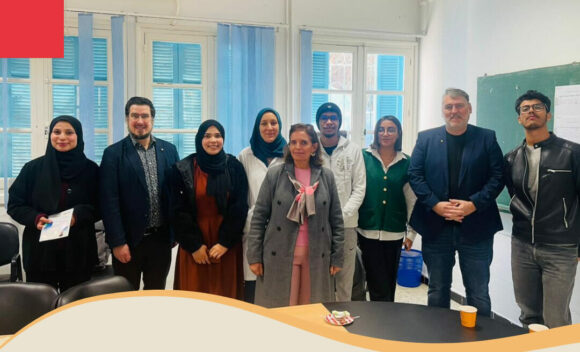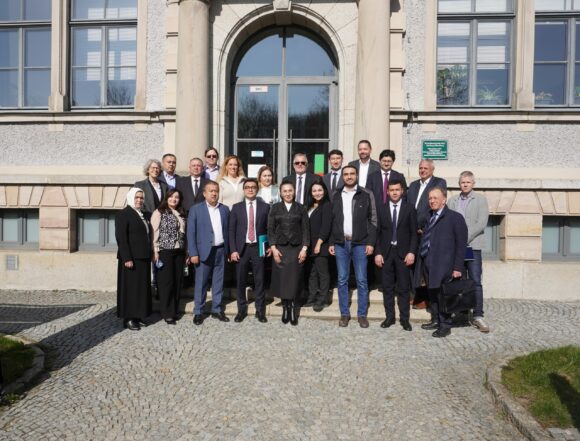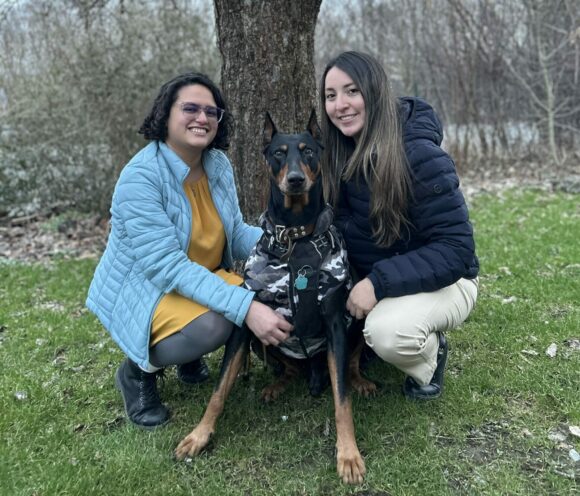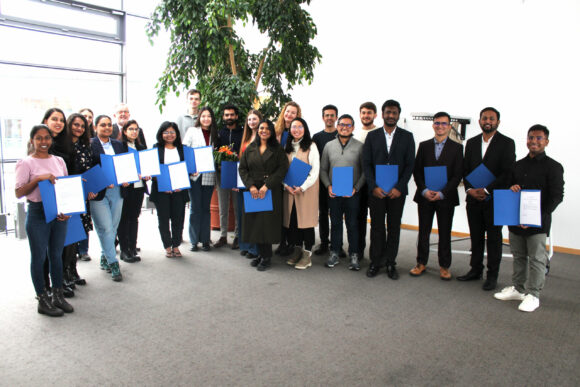The topics of the 6th EU-Forum this year include the connections between the EU and Upper Franconia, EU funding programs as well as the big future topic mobility. Prof. Dr. Peter Schäfer founded the EU Forum, he himself has worked in European organizations for many years and has been Professor of European Business Law at Hof University of Applied Sciences since 1996. In an interview, he talks about the Forum, but also about his views on the state of the European Union.
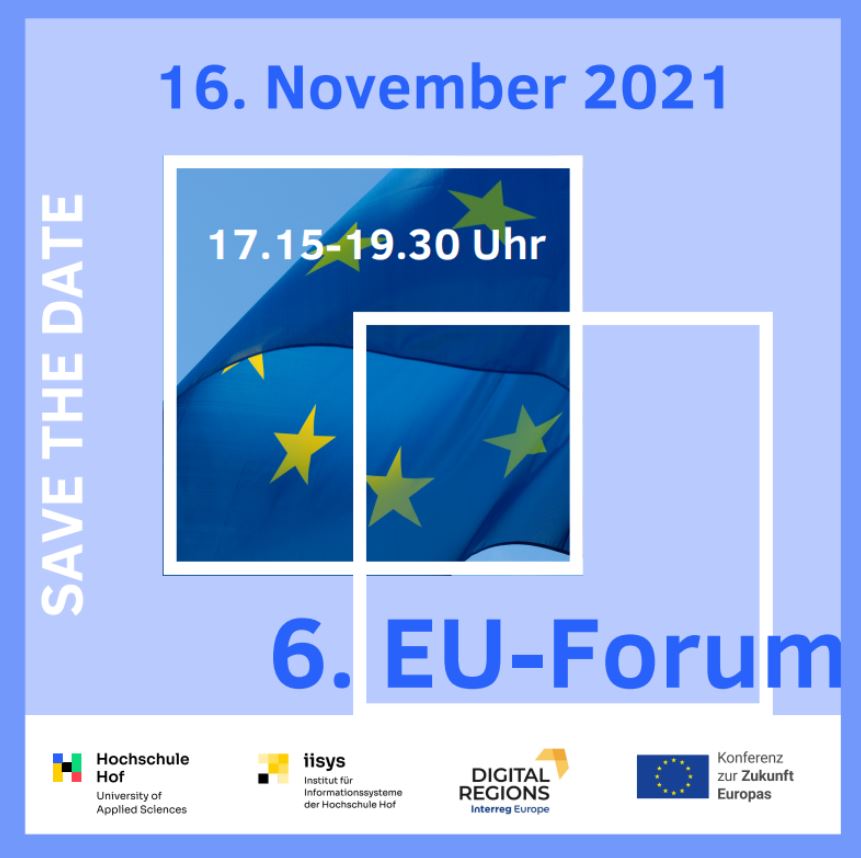
Professor Schäfer, why did you set up the series of events back then?
The annual EU Forum is intended to keep the European idea alive and kicking at Hof University of Applied Sciences and in the Hof region. Peace and freedom in Europe cannot be taken for granted. We have to call on these values again and again, promote them and fight for them.
Every Italian knows 250 gestures – wonderful! To hold the outstretched hand halfway to the hip there means: I’m hungry – delicious! I love this variety!
Prof. Dr. Peter Schäfer
Who are you doing the forum for? Who is the target group and do students also come?
First and foremost, the Forum is aimed at the Hof university community, i.e. primarily at our students, but also at all citizens and companies in the city and district of Hof – regardless of whether they have a positive or critical view of the European Union.
You have been a professor of European business law for 25 years. What fascinates you about this subject?
The European Union with its 27 member states and 450 million inhabitants is the most successful peace project in our history. For 75 years – if we disregard the wars in Yugoslavia – not a shot has been fired in Europe. That is a priceless, valuable asset.
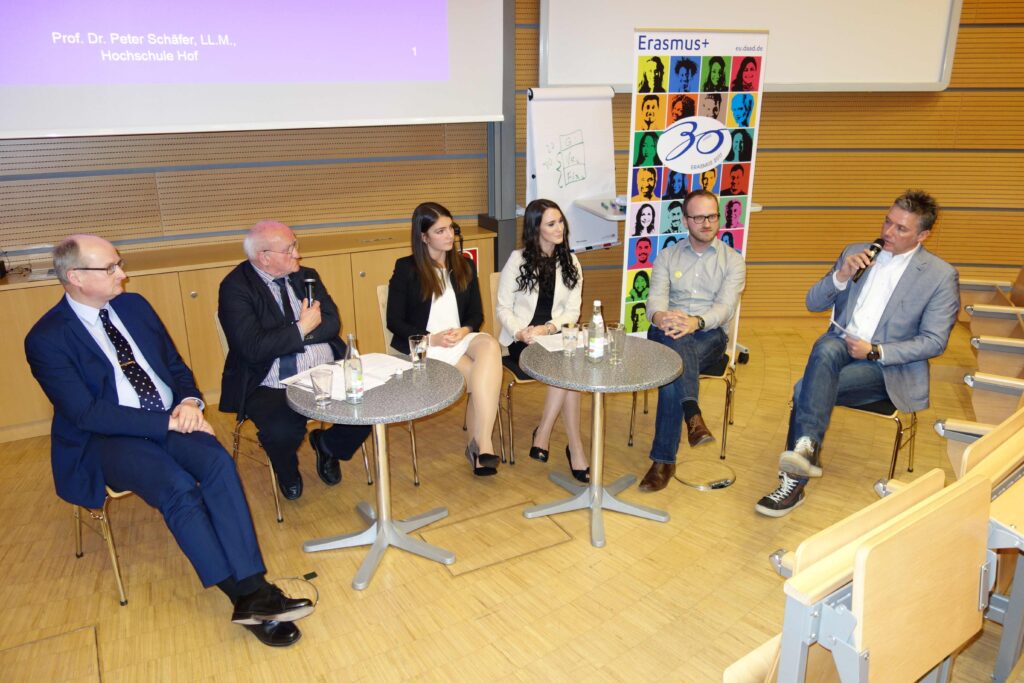
Second, the EU and its legal system bring the peoples of this continent closer together. We learn from each other and are also allowed to laugh at each other sometimes. The EU’s ERASMUS+ exchange program has already enabled millions of students to study with their European neighbors – including my own son, who spent a year in Hungary and felt right at home there. Cultural diversity, promoted and protected by the EU, is what makes this continent so livable and lovable!
Thirdly: EU law is THE bracket of the European family of nations. It takes precedence over national law and now touches all areas of our daily lives. When I studied law in Erlangen in the 1980s, EU law was a peripheral area.
How has the EU changed over the last 20 years? Has it moved closer to the citizens?
With the eastward enlargement, the EU has become bigger – possibly too big too fast. It grew from 15 to 25 member states in one fell swoop in 2004. We should approach further accessions carefully – deliberately, not hastily. And the EU has also become more national: Brexit and the recent ruling of the Polish Constitutional Court send their regards. Most people in Europe are not yet ready for a European nationality. That has to grow first
The Poles and the Hungarians – may I be frank – still suffer from a socialist inferiority and “Moscow-abandonment complex.” We have to take this seriously. Nationalism – unfortunately – has not yet died down in many states. It will take another 10 to 15 years.”
Prof. Dr. Peter Schäfer
In contrast, I think the EU handled Corona well, despite some mishaps. Bulgaria could not have bought the necessary vaccine doses on its own. Yes, the EU is “closer the citizen”, but nobody notices it. Hence the upcoming Europe Forum at our university.
You have set various focal points for this year’s event, what exactly are they? And which speakers have you invited this year?
This year we are focusing on mobility and research, but also on the future of the EU. For example, we have invited the Deputy Head of the European Commission Representation from Munich. He will cover a wide range of topics. Researchers from our university will present current EU-funded programs. A bright business student will speak for the young generation.
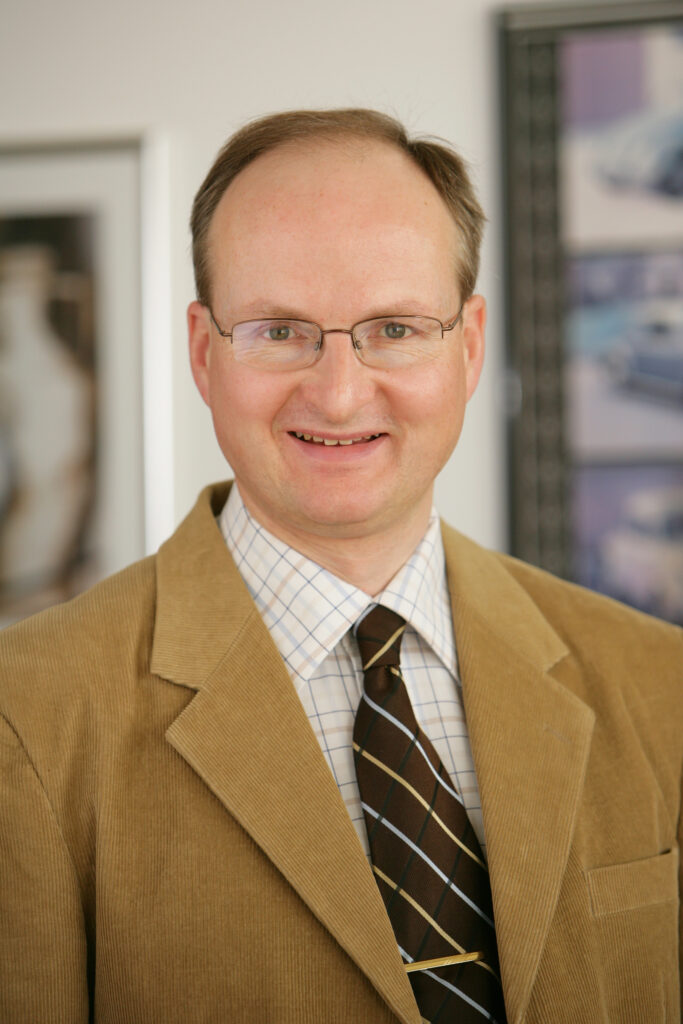
To what extent do you see an actual influence of the EU on Upper Franconia? And: Can you also identify it quite concretely for the development of Hof University?
The structural and regional funds of the EU, something INTERREG, but also the EU research funding directly benefit the region of Upper Franconia and the Hof University of Applied Sciences. Millions are flowing in. Ms. Kitzing and Ms. Müller from Hof University of Applied Sciences will report on this at the forum. Thousands of Hof students have been able to study anywhere in Europe in the last 25 years with EU exchange programs – for as little as 300 euros/month. I think that’s something for a student.
Does the event only take place in and for the region or does it now have a supraregional appeal?
The event mainly radiates into the region. That means a lot to us. But we are also in the process of gaining supraregional partners.
Does what goes on in Upper Franconia also have a feedback effect on the EU, or do we have a one-way street of power and only feel the effects of funding and regional policy here?
Hof University of Applied Sciences with its iisys, the start-up center and the energy and water center is increasingly being taken seriously. Our word counts for something in the German research landscape. But the EU is also taking more and more notice of us, whether through the Bavarian Representation in Brussels, through inquiries and initiatives from Franconian members of the European Parliament, through mayors from the Nuremberg metropolitan region, or through the research results of our professors – when I think of the migraine radar.
Thank you very much for the interview!
The program of the 6th EU Forum at Hof University of Applied Sciences:
17:15
Welcome Prof. Dr.-Ing. Valentin Plenk (Vice President Research and Development at Hof University of Applied Sciences)
17:30
Introduction: The EU -Also important for Upper Franconia and the Hof University of Applied SciencesProf.
Dr. Peter Schäfer (Professor for European Law at the Hof University of Applied Sciences)
5:40 p.m.
:
The state of European integration – EU research funding for universities via INTERREG and EFREDr.
Renke Deckarm (Deputy. Head and Press Officer of the EU Commission in Bavaria and Baden-Württemberg)
18:10 h:
AKTMEL project at Hof University of Applied SciencesStephanie
Kitzing (Project Manager AKTMEL – “Current Reporting Data”)
18:20 h:
Digital Regions -INTERREG project
Katrin Müller (Project Manager Digital Regions)
18:30:
Panel discussion
Moderator: Matthias Will (Head of Economic Department, Frankenpost=Participants
: Dr. Renke Deckarm, Prof. Dr.-Ing. Valentin Plenk, Prof. Dr. Peter Schäfer, Stephanie Kitzing, Katrin Müller, Julia Wohlrab (student of EU law)
7:30 p.m.:
End of the eventRegistrations
are possibleuntil November 11 via email at forschungsmarketing@hof-university.de




